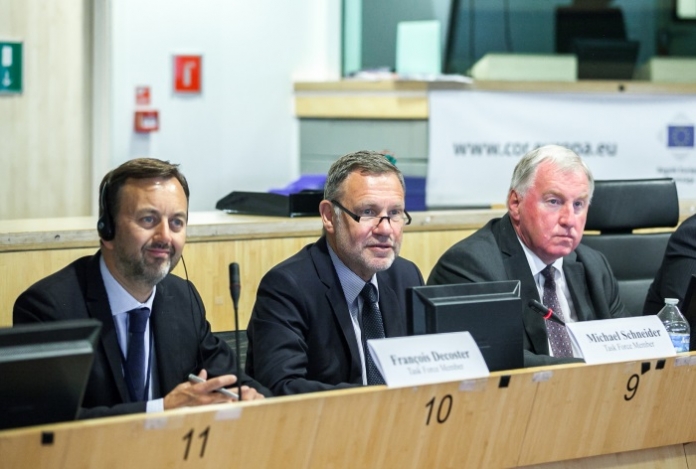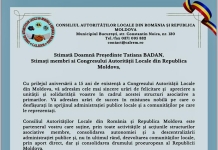EC report takes on board Subsidiarity Task Force recommendations
The European Committee of the Regions (CoR) has welcomed the European Commissions intention to strengthen the involvement of local and regional authorities in the EUs policy-making. The CoR supports the proposals announced in the Commissions communication which the CoR believes will improve the quality and effectiveness of EU policy by giving a greater say to cities and regions.
The European Commission communication on the principles of subsidiarity and proportionality largely endorses the work and recommendations of the Task Force on Subsidiarity, Proportionality and Doing Less More Efficiently, in which the CoR was represented by its President and two of its members. The Commission is proposing to revise the REFIT platform, which aims to improve the quality of EU legislation, by widening its focus to address subsidiarity and proportionality issues, as well as strengthening the participation of local and regional authorities and the links to CoR networks.
The EC communication further welcomes the CoRs Regional Hubs pilot project announced by President Lambertz earlier this month in his The State of the European Union: the view of Regions and Cities speech. The proposed network of regional hubs will serve to support reviews of policy implementation and channel the experience of local and regional authorities more effectively into the EUs policymaking.
CoR President Karl-Heinz Lambertz said: I am pleased the European Commission has not only engaged with and listened to national parliaments and local and regional authorities but has actively taken up their suggestions to improve the functioning of the EU. The EU needs to change the way it works by taking decisions as close as possible to its citizens. By giving regions and cities a stronger say in the EU decision-making process, its laws can become more effective and more visible. It is not about less Europe, but a Europe that delivers putting citizens first
The Commission is also encouraging the European Council, European Parliament and national parliaments to use the proposed Subsidiarity Assessment Grid, as well as to invite representatives of local and regional authorities to their meetings during the legislative procedure and step up the cooperation with regional parliaments. The Commission proposes developing these ideas during a conference entitled “Subsidiarity as a building principle of the European Union which is being organised by the Austrian Presidency of the Council of the EU in Bregenz on 15–16 November.
Alongside President Lambertz, Michael Schneider (DE/EPP) and François Decoster (FR/ALDE) represented the CoR in the Subsidiarity Task Force.
Dr. Schneider, State Secretary of the Land of Saxony-Anhalt, and Chair of the CoRs Subsidiarity Steering Groupinsisted: As regional and local politicians, responsible for the implementation of EU legislation on the ground, subsidiarity helps us to respond efficiently to our citizens needs at the appropriate level: European, national and regional. In this sense, I broadly welcome the European Commissions proposal to make better political and legal use of subsidiarity. In the upcoming period, via our Subsidiarity Monitoring Network, many regions will be scrutinizing the impact of EU law on regions and cities to see how the density of EU legislation can be reduced.
To bring our citizens closer to the EU, we encourage the future members of the European Parliament to ensure that the post 2019 Commission will keep subsidiarity high on its agenda. The European Committee of the Regions stands ready to work with the EU and national authorities in implementing the principle of subsidiarity in practice.
Mr Decoster, Vice-President of the Hauts-de-France Regional Council, said: With the support of the European Commission, local and regional authorities will have a stronger voice and be more fully engaged in European policies. Our principle of active subsidiarity, set out in our Task Force report, will deliver policies that work and increase ownership of what the EU does. Under this framework Im however disappointed that the European Commission did not take into account the Erasmus for local and regional representatives programme I proposed, which would have allowed representatives to launch joint initiatives to the citizens benefit.
Background
The subsidiarity and proportionality principles are enshrined in Article 5 of the Treaty on European Union. The Lisbon Treaty introduced a mechanism allowing national parliaments to scrutinise the compliance of draft EU legislation with the principle of subsidiarity. Via the early warning system national parliaments have eight weeks in which to submit reasons for which they believe a piece of draft legislation does not comply with the subsidiarity principle. If the number of reasoned opinions amounts to one third of the votes allocated to national parliaments, the European Commissions draft must be reviewed. This yellow card procedure has been used only three times between 2007 and 2017.
The Task Force on Subsidiarity, Proportionality and Doing Less More Efficiently was established by European Commission President Jean-Claude Juncker in November 2017. He asked the Task Force to look at three issues: (1) the role of local and regional authorities in policymaking and implementation of European Union policies; (2) the role of subsidiarity and proportionality in the work of the Unions institutions and bodies; (3) whether responsibility for particular policies areas should be re-delegated to the Member States.
The Task Force met seven times to discuss the three objectives. On the basis of those discussions, a public hearing and the inputs provided from numerous stakeholders, the Task Force report presents nine recommendations, with implementation actions addressed to national parliaments, national, regional and local authorities, the European Parliament, the Council, the European Committee of the Regions and the European Commission.
Chaired by the European Commissions First Vice-President, Frans Timmermans, the Task Force includes three members from the European Committee of the Regions – President Karl-Heinz Lambertz (Belgium), Michael Schneider (Germany) and François Decoster (France) – and three members from national parliaments: Toomas Vitsut (Estonia), Kristian Vigenin (Bulgaria) and Reinhold Lopatka (Austria).
Contact:
Lauri Ouvinen
Tel. +32 22822063
lauri.ouvinen@cor.europa.eu









